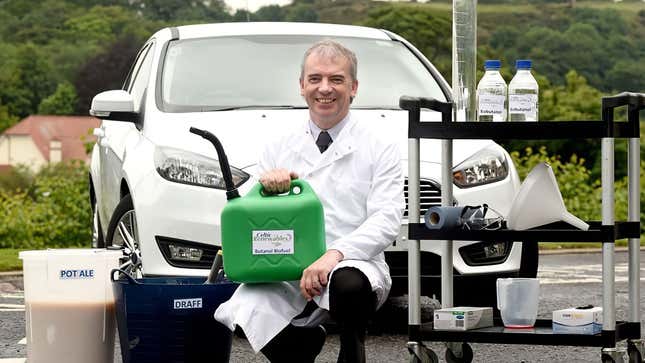
I don’t have to tell you that gas prices are high across the United States right now. While I haven’t reached the point of considering alternatives, the landscape for sustainable fuels for internal combustion engines is changing. Porsche is investing millions of dollars into technology to capture carbon dioxide from the atmosphere and transform it into fuel. What if distilleries could collaborate with fuel refineries.
Celtic Renewables in Grangemouth, Scotland is a company that aims to produce biobutanol as a gasoline and diesel substitute for vehicles. The resources to refine the biobutanol would be sourced from byproducts from the production of Scotch malt whiskey. In 2017, the company created a fuel able to run in an unmodified engine. By October 2021, Celtic Renewable opened its first refinery with plans to build five more.
Biobutanol is chemically more similar to gasoline than ethanol and could theoretically wholly replace the traditional fuel. Though, no major automaker has ever certified that an engine in any of its models could safely operate long-term on 100 percent biobutanol. At the moment, biobutanol tends to be mixed with gasoline in a similar manner to ethanol.
There are a few other projects in Scotland similar to Celtic Renewables. Scotch whiskey producer Glenfiddich in Dufftown has modified its fleet of delivery trucks to run on biogas, instead of biobutanol, made from whiskey byproducts. Glenfiddich claims that the biogas cut their fleet’s carbon dioxide emissions by over 95 percent.
The catch with biobutanol is that it would emit just as much carbon dioxide as gasoline. The reduction in greenhouse gases relative to gasoline is primarily the carbon dioxide absorbed by the barley grown to produce the whiskey. While well-intended, biobutanol’s sustainability relies on “closing the loop” and absorbing CO2 to offset emissions. Though, the distilleries might start price gouging us at the pump as well.